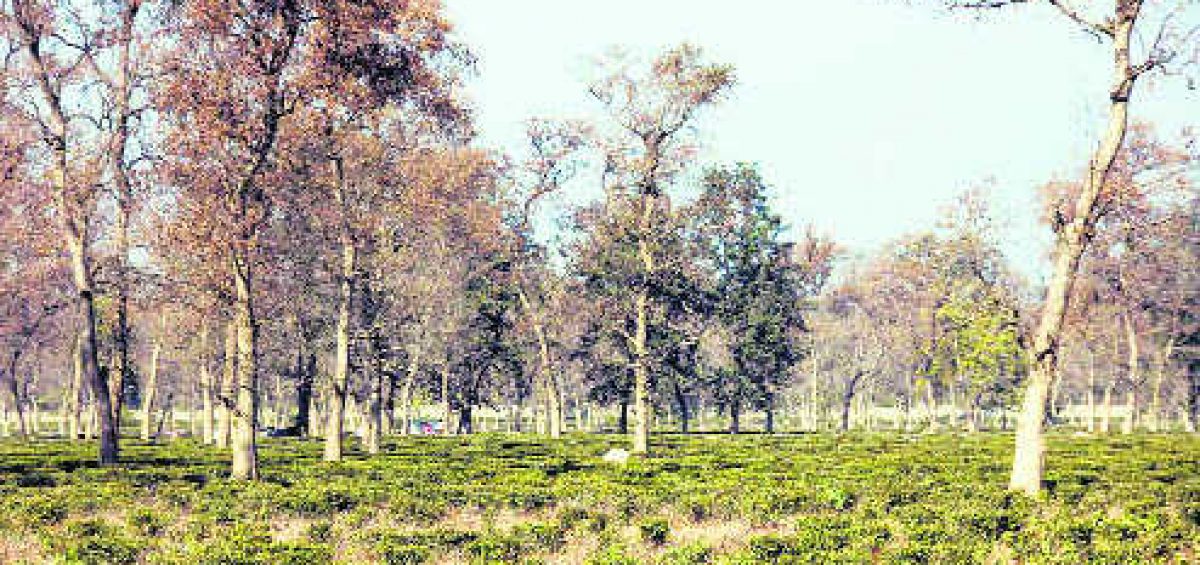The world is full of history and tradition, and although we need progression I don’t think it should be at the expense of either. The tea gardens have been here longer than you or I and should continue for the generations to come…
Jotirmay Thapliyal | Tribune News Service
Dehradun, December 6
The Uttarakhand government’s plans to acquire tea estate land in Dehradun, considered as one of the last surviving green patches in a city, has whipped up strong sentiments among a cross-section of people. Tea gardens of Doon Valley, initiated by Britishers in 1863, have survived despite facing wrath of growing commercialisation, changing climatic pattern and the very challenges from within the industry.
Tea estates such as Arcadia Grant, East Hopetown, Gudiyabagh and Herbutpur are still operational, though some of the tea pockets like Sirmour, Banjarawala and Kargi had fragmented due to infrastructure development.
Chitra Gupta, convener of Chai Bagan Sangarsh Samiti that is leading the agitation against acquisition of tea gardens, asserts that some of these gardens are 170-year-old and the workers are engaged in these estates for past several generations. Besides losing the jobs, the annihilation of tea gardens will lead to severe environment repercussions in Dehradun, he added.
Aam Admi Party leader Anoop Nautiyal said acquisition of tea garden for a smart city would put an adverse impact on the environment as the fragile Doon valley can’t bear mass scale constructions. He said any concept of smart city will be counter-productive for Doon in terms of population pressure and scarcity of resources.
An old Dehradun resident and an ex-planter from Siliguri in West Bengal, Atul Joshi, expresses concern over acquisition of tea gardens. He said it will be most unfortunate if the historic tea gardens of Dehradun face such an end.
There were times when almost one-fourth of Dehradun outskirts were tea gardens and the produce from here vied for top market share with its counterparts from Assam and Darjeeling. The biggest tea estate, Arcadia, was spread over 600 acres and comprised Harbanswala and east Hopetown tea gardens.
Joshi asserts that Dehradun tea gardens must be conserved at all costs. He rather advocates development of tea estates in Dehradun on the lines of those in West Bengal and Assam, where they have been developed as places having tourism potential.
Scientist VP Uniyal said Dehradun was fast losing greenery and now acquisition of tea gardens will give a deadly blow to it.
The Uttarakhand Congress government has reached an agreement with Dehradun Tea Company (DTC) for the procurement of 1,200 acres of tea garden land in Dehradun at a price of Rs 1,728 crore for the smart city project.
Known for organic green tea
Dehradun green tea, apart from being 100% original Chinese breed, is purely organic and in perfect match with health considerations. While tea estates in West Bengal and Assam now prefer cloned tea to increase production levels, Doon has never compromised on its indigenous quality.
The entire Doon green tea reaches Amritsar, the sole and biggest centre of green tea in the country. From there it is exported to Pakistan and Afghanistan, in addition to markets in Jammu and Kashmir, Himachal Pradesh and other areas.
Original source: http://www.tribuneindia.com/news/nation/doon-may-lose-tea-gardens-activists-fume/167708.html
Image: Harbanswala in Dehradun, which is part of the biggest tea estate, Arcadia, spread over 600 acres



